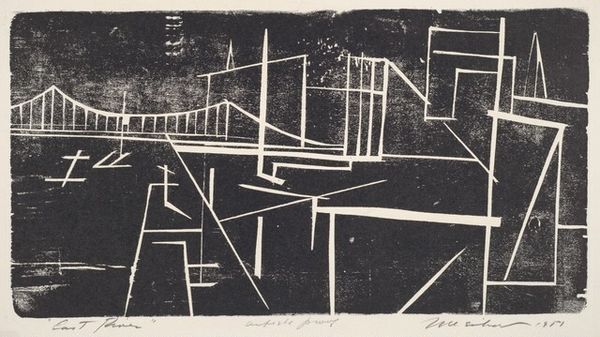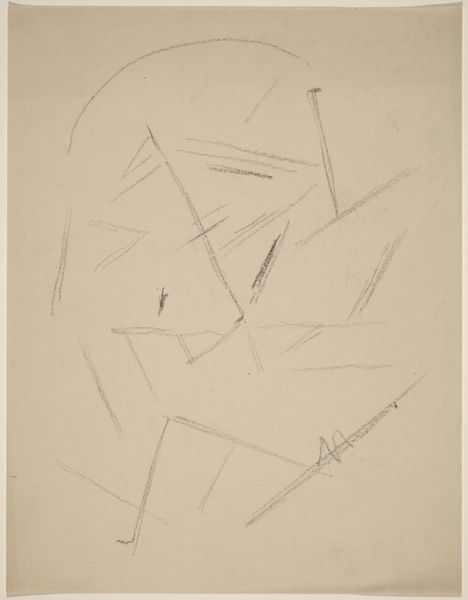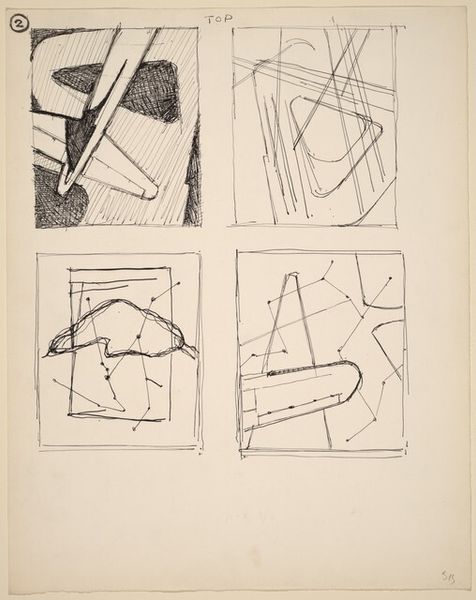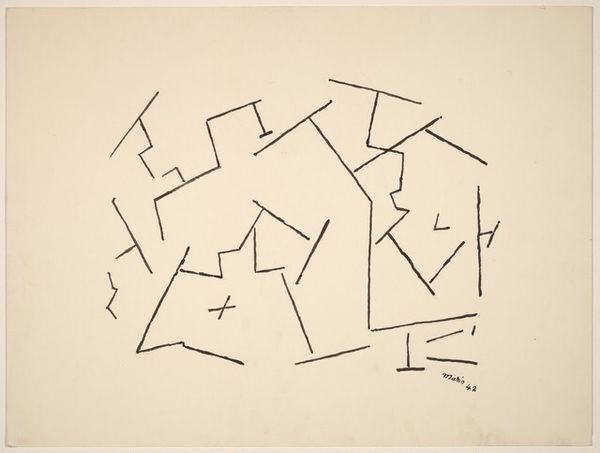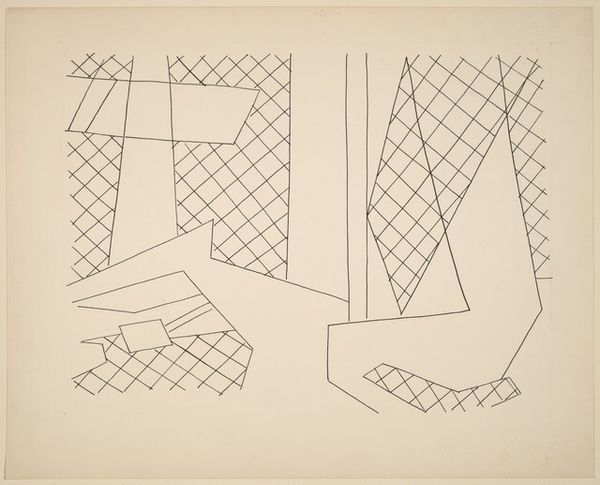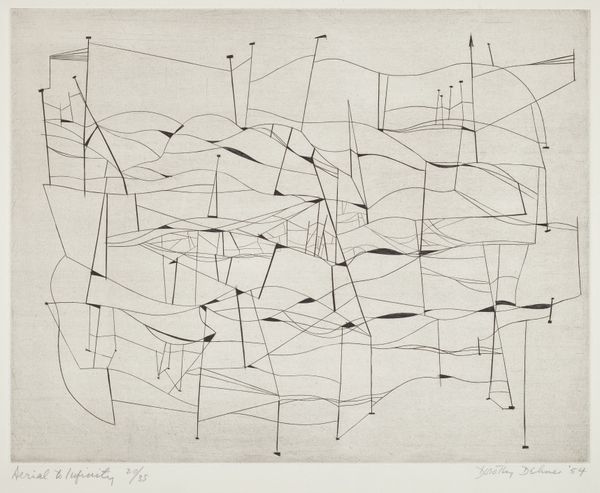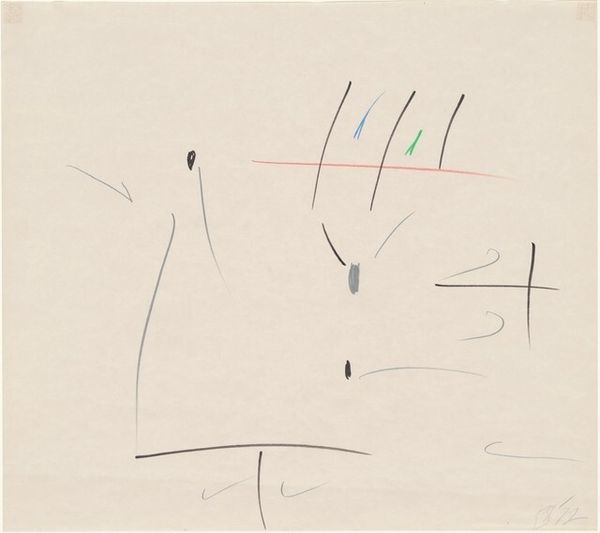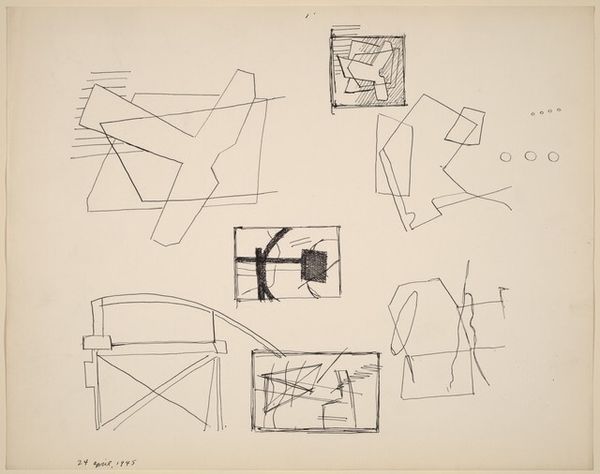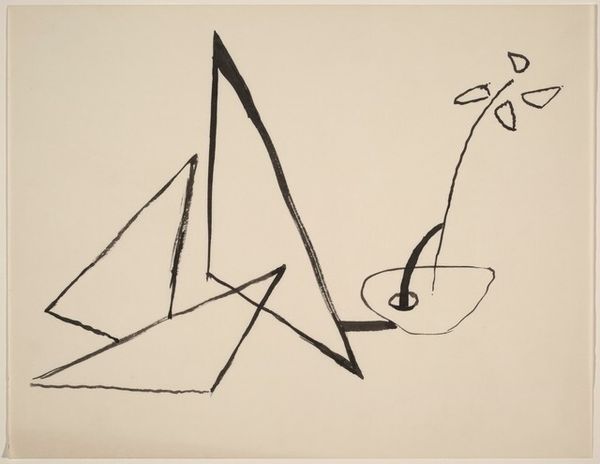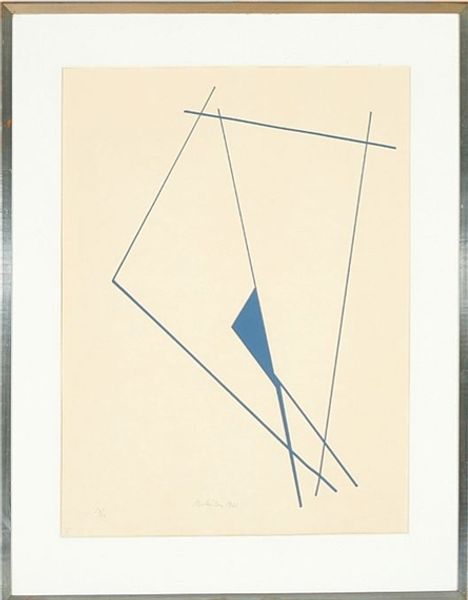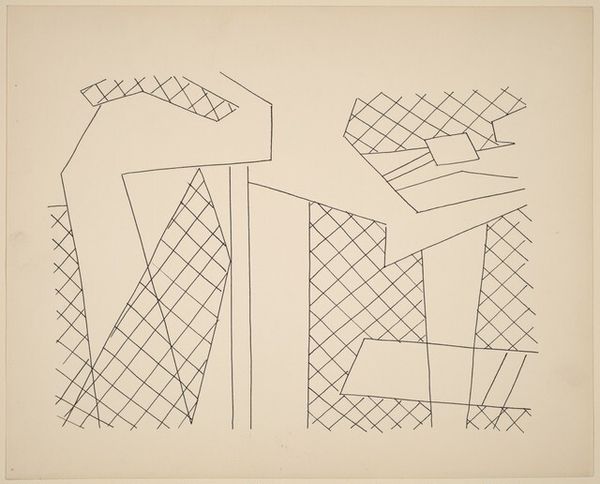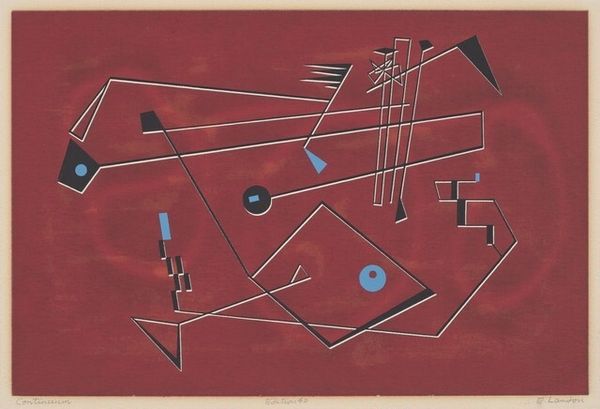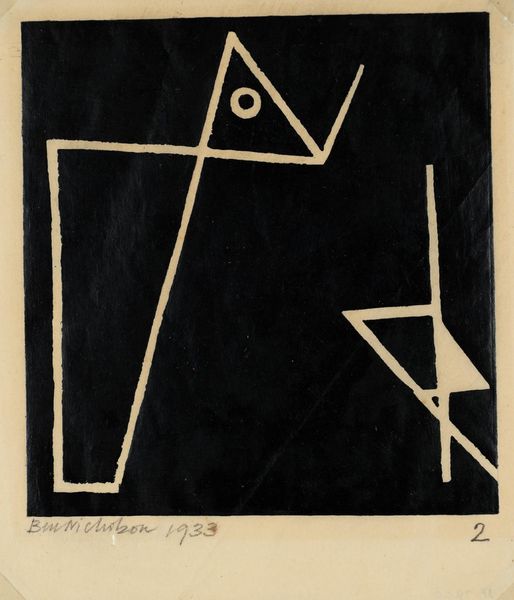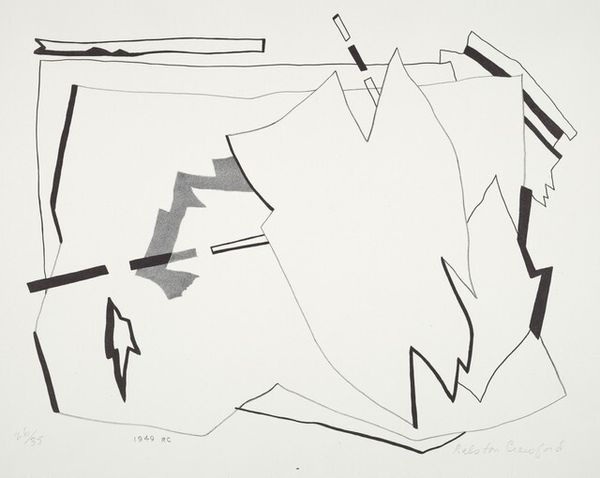
drawing, paper, ink
#
drawing
#
etching
#
paper
#
ink
#
geometric
#
abstraction
#
line
Dimensions: overall: 29.3 x 37.2 cm (11 9/16 x 14 5/8 in.)
Copyright: National Gallery of Art: CC0 1.0
Editor: This drawing from Ralston Crawford, titled "Untitled," created around the 1940s using ink on paper, strikes me as a kind of deconstructed industrial landscape. It's very minimal, almost architectural in its starkness. What jumps out at you? Curator: I see this piece reflecting the changing perception of industry and labor in the 1940s. Crawford was deeply interested in industrial sites and their impact on the American landscape. The clean, almost clinical lines hint at the rationalization of labor, perhaps even anxieties surrounding mechanization and the human role within these burgeoning industrial systems after the Great Depression. Do you feel any tension or dynamism within this calm style? Editor: I see it a little differently. The floating ladder, the abstract shapes – it feels less like a literal depiction of industry and more like an emotional response to it. The lack of clear context or human figures, despite its depiction of architectural forms, isolates the shapes and transforms them into a more expressive, perhaps even unsettling composition. Curator: Precisely. Think about the broader artistic context. Artists during this period grappled with representing a world irrevocably altered by technology and war. This work embodies this very feeling! Do you consider it to be more optimistic or pessimistic in its representation of a society impacted by the changing economic structures and how people saw their relationship with work and the value that they contribute? Editor: I'd lean toward pessimistic, actually. Despite its simplicity, there's a coldness, a certain lack of human touch. I came in not having an emotional connection, but reflecting, I can't help feeling the cultural weight. It's great how looking through this historical lens gives context and changes the piece entirely. Curator: And for me, it is nice to be reminded that my interpretations are influenced by current anxieties, rather than a definitive truth. It is a good reminder that we cannot help but view and consider a historical context through our present.
Comments
No comments
Be the first to comment and join the conversation on the ultimate creative platform.
